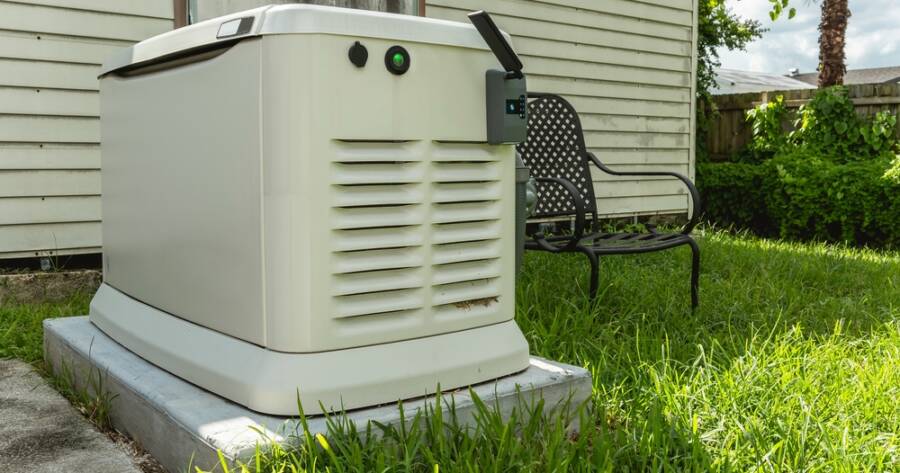Emergency generators are indispensable for ensuring household continuity during power outages, highlighting their role in preventing issues like food spoilage and sump pump failure. From selecting the right generator size to understanding fuel types and noise reduction features, power solutions have evolved with technology—bringing smart connectivity and alternative power options to the forefront. Understand the crucial considerations and advancements in generator technology that prepare homes and businesses for unforeseen disruptions.
Importance of Emergency Generators
Emergency generators play an essential role for homeowners during unexpected electrical outages. Without them, events such as power failures may lead to food spoilage or mold growth, not to mention water issues in the basement when the sump pump is not operational.
The ability to select the appropriate generator size, which can support vital household appliances, is crucial for maintaining everyday life during such disruptions. Manufacturers like GE, Generac, and Kohler offer tools that assist in determining the necessary wattage for backup power, simplifying the user’s decision-making process.
Key Features to Consider When Selecting a Generator
The emergence of electronic devices and modern HVAC systems has necessitated developments in generator technology to prevent issues caused by harmonic distortion and enhance their utility. Many newer models offer minimized Total Harmonic Distortion (THD), safeguarding sensitive electronics. Noise reduction features are also significant; technologies such as Generac’s Quiet-Test and Briggs & Stratton’s SoundVault Enclosure reduce noise pollution during maintenance cycles.
Fuel type also significantly influences a generator’s utility during power outages. Propane, known for its long shelf life and environmental benefits, is preferred for standby generators in homes. Diesel, unmatched in fuel efficiency, is ideal for prolonged, intensive use, whereas gasoline, although readily available, suits temporary and portable power needs best due to its properties.
Technological Advancements in Emergency Generators
Advanced monitoring and control features have revitalized generator management, reducing dependency on expensive switchgear and preventing outages from escalating. Integrating smart technology in generators, such as Ethernet ports, allows for online connectivity and remote diagnostics.
This ensures operational readiness and peace of mind during outages. Systems including Kohler’s OnCue offer remote management solutions by providing real-time data on the generator’s performance while responding efficiently to potential issues to enhance home preparedness.
Generator Types and Their Applications
There are two primary types of generators to consider: standby and portable. Standby generators are permanently installed and configured to supply power automatically during a failure, making them ideal for homes or facilities requiring uninterrupted power to critical systems like HVAC and medical equipment ensuring continuous operational capability.
Conversely, portable generators necessitate manual operation and offer flexibility for temporary uses, such as outdoor events. Evaluating the capacity of these generators by measuring necessary kilowatts against essential appliances helps prevent power shortages during an outage.
Installation and Maintenance
Professional installation is imperative to ensure seamless integration of generators into existing electrical systems. Certified electricians confirm that installations reach regulatory standards and optimize the generator’s lifespan through regular maintenance through regular processes.
Such maintenance, including routine checks of fuel levels and filters, guarantees the generator’s performance and reliability in emergencies. Incident protection features, such as Automatic Voltage Regulation (AVR) and surge protection, maintain power stability and safeguard connected devices from voltage variations and power surges.
Alternative Power Solutions
Alternative backup power options are gaining popularity, providing immediate, short-term support through Uninterruptible Power Supply (UPS) systems. Solar power serves as a sustainable option to extend power availability during prolonged outages.
These solutions are particularly advantageous for maintaining critical lighting systems, with features like weatherproof enclosures and automatic transfer switches ensuring seamless power transitions and protection against extreme weather conditions which are often recommended.
Are You Ready For An Emergency?
Investing in a reliable emergency generator is not just about convenience—it’s about resilience. As severe weather events and infrastructure challenges become more frequent, the ability to maintain power during outages protects essential systems like heating, refrigeration, and communication.
Today’s generators combine durability with innovation, offering automatic transfer switches, mobile monitoring, and eco-friendly fuel options that align with both modern living and sustainability goals. By understanding your energy priorities and choosing equipment designed for efficiency and longevity, you can ensure your home or business remains safe, connected, and fully operational when it matters most. You really can’t put a price on peace of mind!
